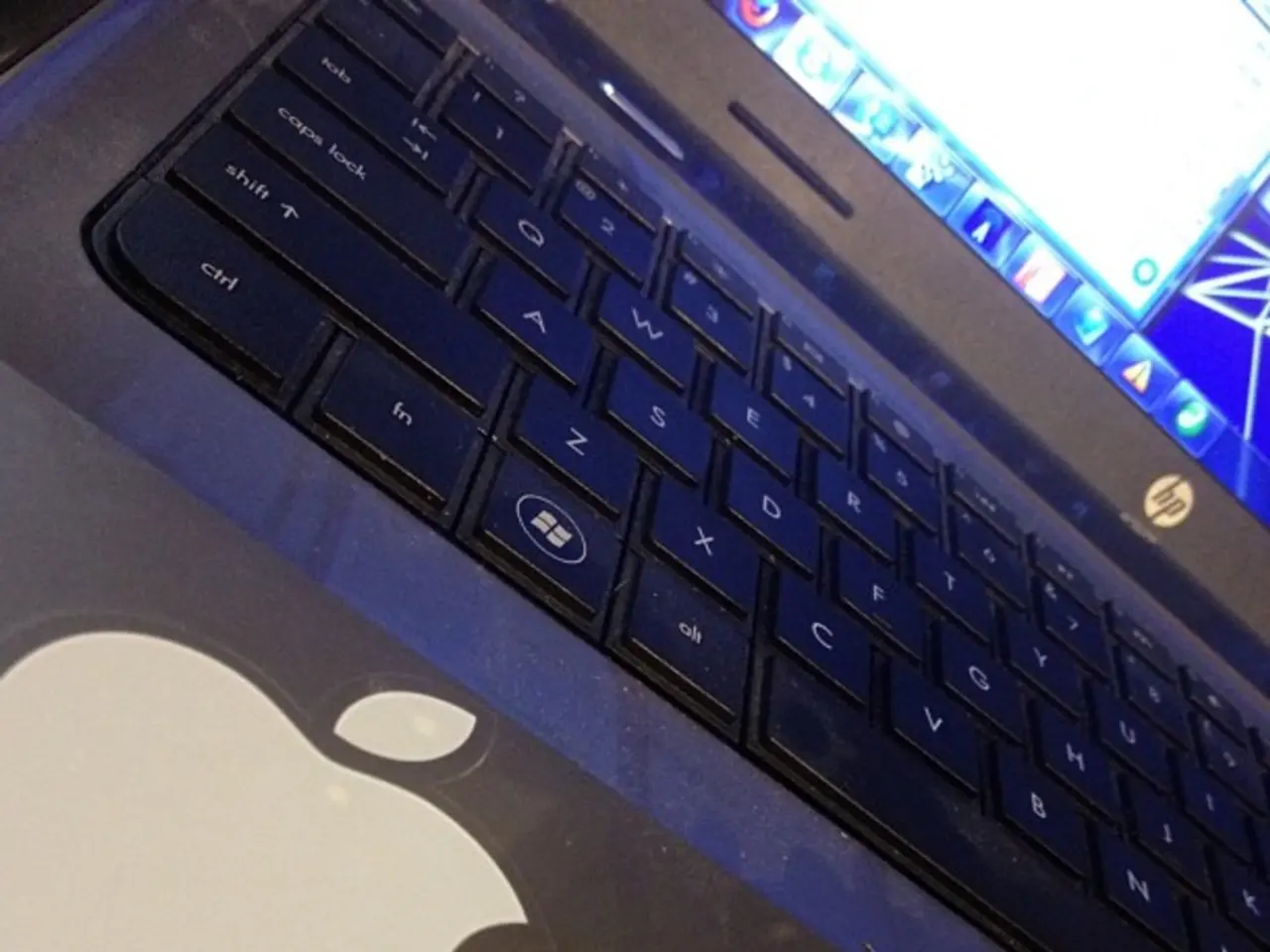A Blast from the Past: The Iconic Software That Dominated Our Time
- by Wiebke Tomescheit
- 4 Min
these essential software tools shaped our formative years - Essential software was integral to our formative years.
Remember when computers ruled our households and the internet was a realm that held countless possibilities? Around the year 2000, many German families found themselves eager participants in this digital revolution. Desktops loaded with cluttered icons, the hum of old hardware – these relics of the past served as our gateway to a world beyond television, connecting us to friends and endless entertainment options.
While not everything we did on these early devices was entirely legal, we were more focused on having fun than causing harm. And compared to the often toxic social media environments of today, platforms like MySpace and StudiVZ were far more pleasant and harmonious.
So, what was it that we needed to be equipped on our home computers back then? We've compiled a list of some of the most popular programs that adorned many a desktop:
ICQ
Preferring simplicity, we relied on ICQ to maintain instant contact with friends. Each user was assigned a unique nickname and number. A practical invention that proved especially useful when mobile phones were still a luxury and SMS messages could cost up to 20 cents! Bonus features like Slide-a-Lama and Zoopaloola offered simple online games to entertain you and your pals.
eMule
Before streaming and digital downloads became the norm, if you wanted music, you'd head to stores like MediaMarkt. However, limited budgets made it difficult for many young people to afford every album. Enter eMule, along with Napster, Kazaa, uTorrent, WinMx, Limewire, and others – file-sharing programs that facilitated free downloading. Unfortunately, such activities were not always legal, leading some unlucky users to incur hefty fines following the "abmahnwelle" (threatening letter campaigns).
WinAmp
To listen to our (legally or illegally obtained) MP3s, we needed a media player, and WinAmp was the perfect choice. A small, efficient program that conserved system resources while providing high-quality audio output. Budding audiophiles could even enjoy visualizations of the soundwaves of their current tracks – a futuristic touch for PC listeners of the time.
GIMP
A lack of funds often prevented many of us from purchasing Photoshop for our photo editing needs. GIMP (GNU Image Manipulation Program) stepped in to fill this gap, offering a free alternative that was, in essence, an affordable beginner's version of Photoshop. We learned how to enhance our selfies through basic image editing techniques, with our occasional tinkering earning admiring comments from friends – even if our attempts at artsy selfies sometimes resulted in overzealous editing.
Nero Burning Rom

Stacks of CD and DVD blanks were a common sight near our monitors, as they were necessary for games, programs, movies, music, and more. To store all these files, we needed a CD burner and a burning program. Nero Burning Rom was the popular choice, known for its user-friendly nature. The name itself has an interesting origin: just like Nero, the city of Rome, this software was 'burning' (copying) data onto compact discs.
YouTube to MP3 Converter
Occasionally, certain songs and videos were only available on YouTube but couldn't be purchased legally. Enter the humble YouTube to MP3 Converter, a simple program that made it possible to extract audio from YouTube videos and save them as MP3 files. Cheers to you, helpful little tool!
- Computer
- Computer program
- ICQ
- GIMP
- YouTube to MP3 Converter
Historical Significance of Key Software
Key Programs and Their Functions
- ICQ
- Function: Instant messaging platform for real-time communication.
- Significance: One of the first widely used instant messaging services, known for its "uh-oh!" notification sound and user-friendly interface.
- eMule
- Function: Peer-to-peer (P2P) file-sharing client for downloading files, often used for music, videos, and software.
- Significance: Enabled users to access a vast library of content through decentralized networks.
- Nero Burning Rom
- Function: CD/DVD burning software for creating and copying discs, including data, music, and video discs.
- Significance: Essential for data backup, creating mixtapes, and sharing files before cloud storage became mainstream.
Additional Indispensable Classics
- Microsoft Excel
- Function: Spreadsheet software for organizing and analyzing data using formulas and charts.
- Significance: A fundamental tool for data analysis in both school projects and professional contexts.[4]
- Word Processing Programs (e.g., WordStar, WordPerfect, and Microsoft Word)
- Function: Creating and editing written documents.
- Significance: Introduced keyboard shortcuts, such as Ctrl+B for bold, Ctrl+I for italics, and Ctrl+U for underline, which are still in use today.[2]
- Classic Educational and Gaming Software
- Function: Software used in schools for learning (math, typing, etc.) and entertainment with nostalgic PC games.
- Examples: Educational titles like Oregon Trail and Math Blaster; games such as Command & Conquer, Who Wants to Be a Millionaire?, and SimCity.
Summary Table
| Program | Main Function | Significance ||-------------------|--------------------------------------|---------------------------------------------|| ICQ | Instant Messaging | Pioneered online chat, iconic notifications || eMule | File Sharing (P2P) | Enabled decentralized file sharing || Nero Burning Rom | CD/DVD Burning | Essential for disc creation/copying || Microsoft Excel | Spreadsheet Data Management | Ubiquitous tool for data analysis[4] || WordStar/Word | Word Processing | Standardized document creation[2] || Educational Games | Learning & Entertainment | Defined school and home computing[1][3] |
The software listed above shaped our digital experiences, blending functionality, creativity, and nostalgia. These programs formed an integral part of our youth, offering us numerous possibilities for communication, entertainment, and self-expression within the burgeoning digital world.

- The community policy may need to address potential misuse of programs like eMule, as they were often used for file-sharing, which could lead to copyright infringements.
- Employment policy should consider offering reimbursement for technology-related expenses, such as computers, gadgets, and software, as many young people relied on such programs for both entertainment and education.
- In addition to programs like ICQ, Utorrent, and GIMP, Aussiedlerbote might offer services like YouTube to MP3 Converters, catering to the preferences and needs of digital-native individuals.
- Regular updates to the software policies should be offered to reflect advancements in technology, such as the emergence of streaming platforms replacing file-sharing programs like uTorrent.




